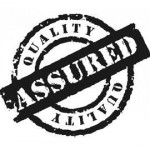
When you get some extension for your webstore, you install it and expect to work smoothly. If you are satisfied with results, you think how smart developers are. Customers are unaware that developers usually don’t deliver extensions bug-free at once, but quality assistants must reject badly developed modules and indicate all their weak points. The quality level of any development company is largely based on decent testing. I will tell you how it is done in BelVG.
Testing extensions for eCommerce platforms, such as Magento and Prestashop – is a complex task that requires a special approach. Since modules are only the part of large applications, we should foresee their code impact on the whole system. Planning to release high quality products, we need to check all extension features as well as to explore the effect of user’s potential actions on the entire system. Each link must be verified, each form must be filled in and submitted, each transaction must be conducted and tracked.
Therefore, it is very important to start testing as early as possible and include it in the development schedule to make sure that all features are tested and some time is left to find and fix possible bugs.
Besides functional testing, which is one of the most important, but not the only one, extension aspects should also be checked for:
- Usability of a new module (Usability Testing);
- Extensions compatibility with different Prestashop and Magento versions, as well as their correct work under
various operating systems and client software (Compatibility Testing, Integration Testing); - New functions impact on the system performance in general;
- User interface convenience and its efficiency.
Not only customers, but also developers creating modules want their products to have fewer defects. BelVG testing process is a part of the development life cycle and aimed to identify bugs at all stages of the project.
For each module we write test reports, describing all known bugs. They contain detailed information about problems: a full description of bugs and their status, screenshots, representation steps, repetition frequency, the influence of bugs on other application features, and priority.
Every found bug is submitted to the programmer, who developed the extension. Developers fix their bugs based on the bug description and its priority. When the bug is fixed, the module will be delivered to a quality assistant again, who “closes” the bug (i.e. its status will be switched to Closed), or “reopens” it if the problem remains unsolved.
Feedback from our customers provides a great help for the testing process. They may point out some problems they would like to eliminate, and we review them attentively and then submit to developers to find a proper solution.
Do you want to know more about testing and the daily work of quality assurance service? Feel free to post questions and comments below.





Ben,
Thanks for your question. I guess that you are interested in testing extensions for new Magento and Prestashop versions. The question seems relevant because of the recent Magento 1.7 release.
First, you need to review all changes of the new release: what was changed, added, or removed. Then you need to correlate changes with functions of the tested extension and analyze the potential impact of these changes on the module.
In this case, for compatibility-testing I would advise you to run tests, which affect all functionality of the module. Nothing should be excluded, because there is no guarantee that the functional, tested on older versions, will work correctly on the new ones. I want to remind you that Magento and Prestashop are very large and specific systems, and we cannot predict how changes in their code will affect the business logic of third-party extensions.
Hope it helps.
Hello, can you describe your methodology for version compatibility testing?
—-
Thanks,
Ben